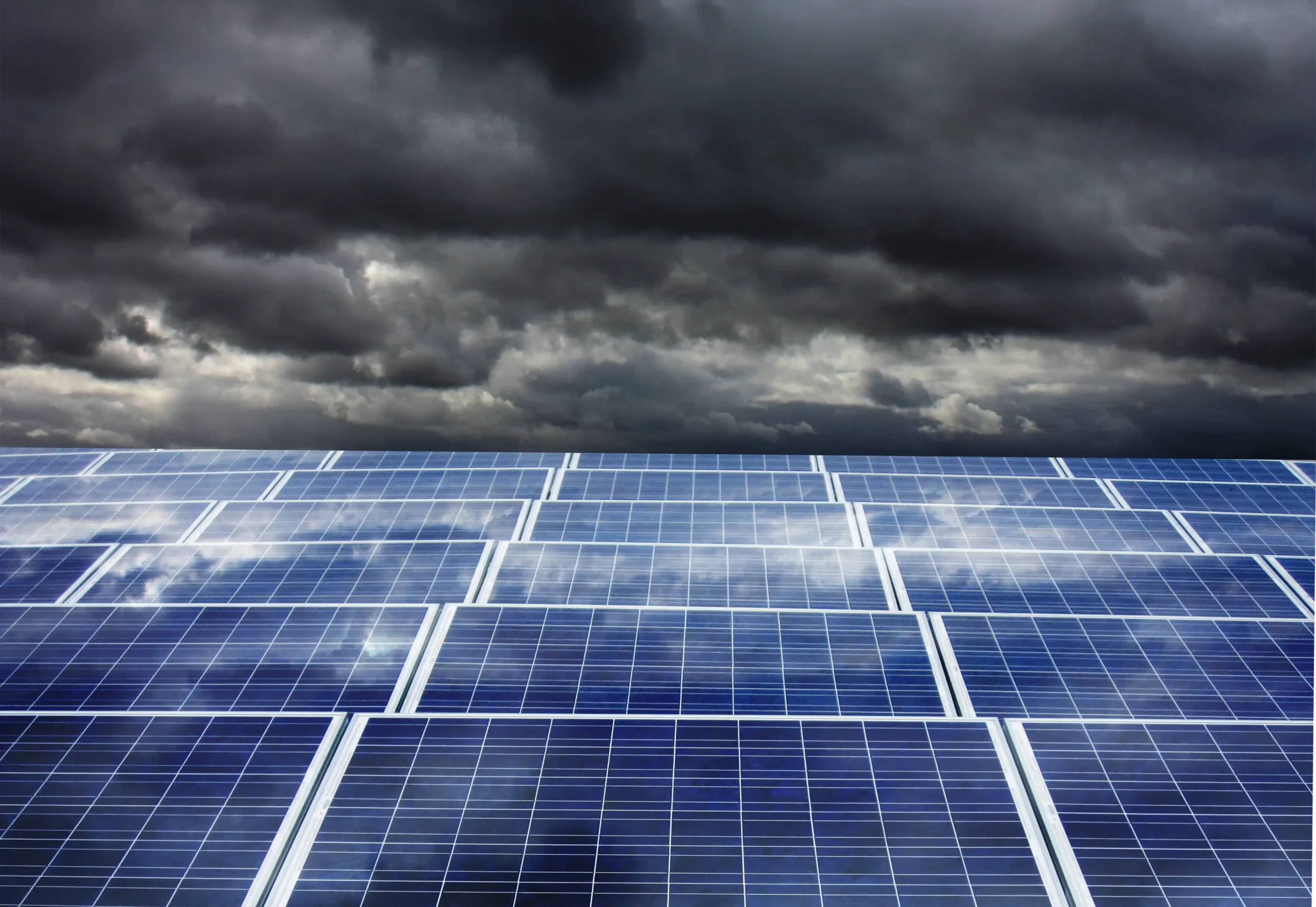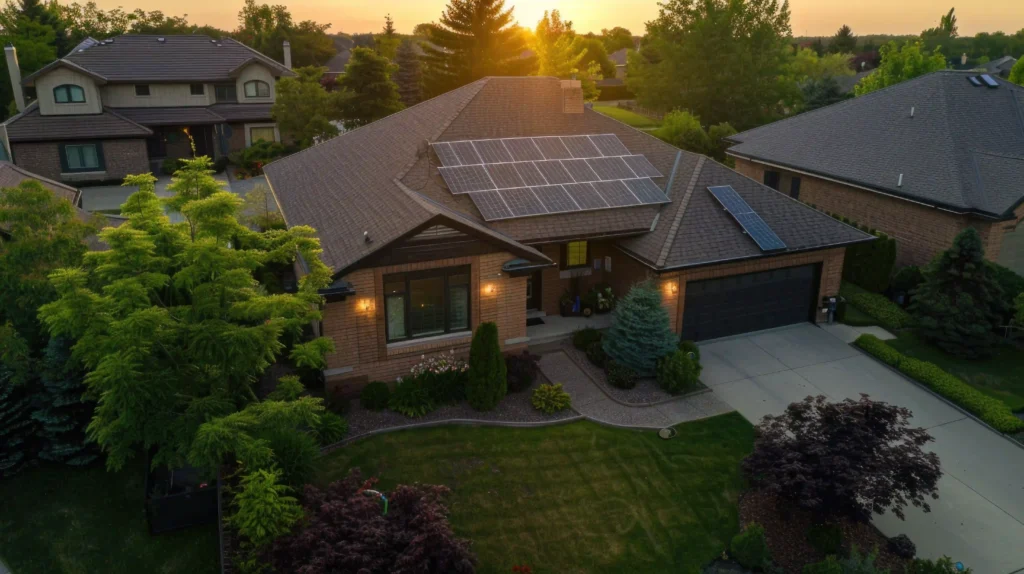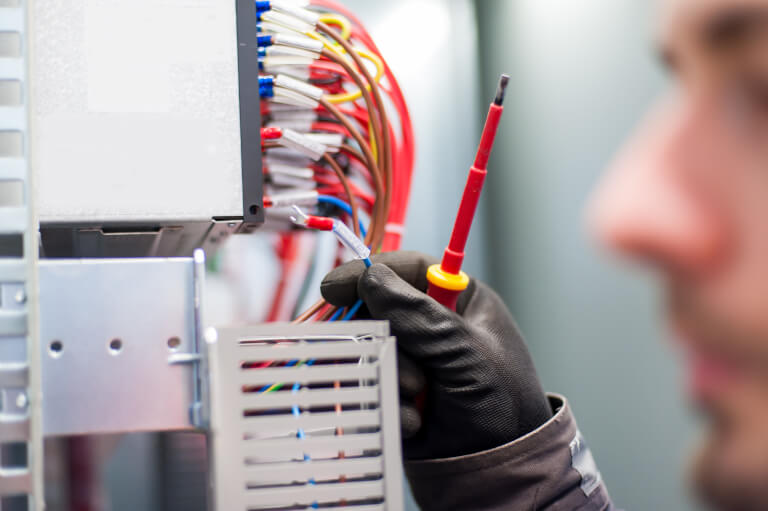
How Commercial Charging Stations Benefit Michigan Companies
As electric vehicles (EVs) become a common sight on Michigan roads, businesses across the state are recognizing the value of
Have you been thinking about going solar for your Michigan home?
Whether it’s to lower your monthly electric bill, increase your property value, or reduce your carbon footprint, solar energy has become a smart and accessible choice for many homeowners. However, if you’re still on the fence, there’s a critical deadline you need to know about.
A major federal incentive is set to expire soon, and acting now is the only way to ensure you don’t miss out on thousands of dollars in savings.

Going solar is a significant decision, but the financial benefits make it a compelling investment. By generating your own power, you can dramatically reduce or even eliminate your monthly utility bills, offering immediate savings that add up over time.
Additionally, a professionally installed solar system can increase your home’s value, as more and more buyers are looking for energy-efficient properties.
However, the most powerful financial incentive is the federal solar tax credit. The Residential Clean Energy Credit (RCEC) allows you to claim a credit of 30% of the cost of your solar system. This can translate to thousands of dollars in direct savings for the average Michigan homeowner.
Under previous legislation, the RCEC was set to remain at 30% through 2032 before phasing out. But a new law, signed in July 2025 and sometimes called the “One Big Beautiful Bill,” has accelerated this timeline.
The federal solar tax credit is now scheduled to expire on December 31, 2025.
This isn’t a slow phase-out; it’s an abrupt end to the credit. To qualify for the full 30% savings, your solar system must be fully installed and “placed in service” by the end of the year. If you wait until January 1, 2026, or later, this valuable incentive will be gone completely.
This change is creating a real sense of urgency. The entire solar industry—from manufacturers to installers—is experiencing a surge in demand as homeowners rush to get their projects completed before the deadline. This means that installation schedules are filling up fast. Waiting too long could mean not only missing the tax credit but also facing longer lead times for materials and permits.

Let’s put the savings into perspective. The average cost of a residential solar system in Michigan is around $15,000 to $30,000 before incentives.
With the 30% federal tax credit, you could save between $4,500 and $9,000 on your system.
This amount is a direct reduction of what you owe in federal taxes.
You would lose that entire savings, increasing your upfront cost and extending your payback period by several years.
This isn’t just a missed opportunity for a discount; it’s a fundamental change to the financial model of going solar.
The process of going solar—from initial assessment to final installation and inspection—can feel overwhelming. This is especially true with the added pressure of a looming deadline. This is where having a reliable, local partner makes all the difference.
At Michigan Quality Electric, we believe in making the transition to solar as seamless and stress-free as possible. We’re not just salespeople; we’re licensed electricians and seasoned solar professionals who understand the unique needs of Michigan homeowners. We have a deep knowledge of local regulations and are committed to clear, honest communication every step of the way.
We work with you to design a custom solar system that fits your specific energy needs and budget. Our comprehensive services include:
We’ll analyze your home’s energy usage and sun exposure to create a system that maximizes efficiency and savings.
Our in-house team of licensed professionals handles every aspect of the installation, ensuring your system is safe, compliant, and built to last.
Whether you want to add a battery backup system for energy independence or pair your solar with a generator for total peace of mind, we can design a solution that works for you.
We’ll help you understand the current incentives and financing options available, so you can make the most informed decision.
The Residential Clean Energy Credit (30%) is a federal income tax credit that lets Michigan homeowners claim 30% of the total cost of a qualifying solar installation (equipment + labor + permitting).
It reduces your federal tax liability dollar-for-dollar. It’s not a rebate or cash payment; you should confirm specific eligibility with a tax professional.
Per your blog’s update, the 30% federal credit will end after Dec 31, 2025.
If your system goes live on or after Jan 1, 2026, you would lose the 30% savings, changing your ROI and lengthening payback by years.
Typically: solar panels, inverters, racking, wiring, balance-of-system, labor, permitting, and sales tax.
Those costs may also qualify if you add battery storage to your project. Always verify with your tax advisor.
Utilities in Michigan offer bill credits for excess generation, but program rules and rates vary by provider and tariff.
Your net savings depend on system sizing, usage, and utility crediting structure. MQE can model your expected production and savings based on your address and bill history.
Yes, but plan for it. Roof repairs or replacements can add weeks to the schedule.
MQE can coordinate timelines, design your array for future roof accessibility, and keep the project on track so you’re energized by year-end.
Options include cash, low-APR loans, and Michigan-focused financing (e.g., programs like Michigan Saves).
Financing can deliver positive cash flow when utility bill savings offset your monthly loan payment. Our team can walk you through choices and timelines.
Typically, the credit reduces your federal tax liability and is not refundable; consult your CPA on carryforwards and any special conditions.
MQE provides an itemized cost breakdown to support your tax filing, but we don’t give tax advice.
“Placed in service” generally means your solar system is fully installed, inspected, interconnected, and energized by your utility—operational by Dec 31, 2025.
Paperwork or deposits alone won’t qualify. Because permits, inspections, and utility approvals can take time, starting now helps ensure you meet the deadline.
With average Michigan residential system costs of $15,000–$30,000 (before incentives), the 30% credit can result in $4,500–$9,000 in direct federal tax savings, significantly lowering your net cost and speeding up payback.
Yes. With the deadline approaching, installers, manufacturers, and AHJs (permitting authorities) are busier than usual.
Expect longer lead times for site assessments, permits, equipment, and utility interconnection.
Booking early increases your chances of being placed in service before year-end.
If you want energy independence, outage protection, and time-of-use bill control, a battery is worth considering.
It may qualify under the same federal credit when installed with solar (or as a standalone, depending on current rules).
It also pairs well with generators for critical-load resilience.
They can. Many HOAs approve solar with reasonable placement and aesthetic guidelines.
Historic or special-use districts may require additional review.
Start approvals early—MQE provides drawings and documentation to streamline this process.
MQE is a local, licensed electrical contractor.
We handle custom design, in-house installation, code compliance, and integration (battery, generator, EV charger).
You get straight answers, local permitting expertise, and long-term service from a team that will be here after installation.
The benefits of solar power are undeniable, but the opportunity to save thousands of dollars is fading fast. This is a critical moment for Michigan homeowners to take control of their energy future.
Schedule a free consultation with Michigan Quality Electric today to lock in your solar savings before the 2025 deadline.
(248) 449–4200
As electric vehicles (EVs) become a common sight on Michigan roads, businesses across the state are recognizing the value of

Keeping your Michigan home safe and energy-efficient starts with your electrical system. As technology advances and energy costs rise, investing

As electric vehicles (EVs) become more common across Southeast Michigan, the need for reliable, efficient charging solutions is greater than